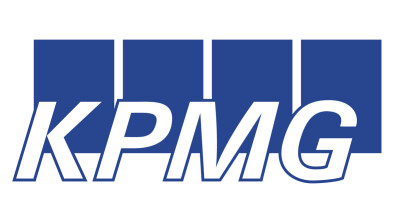KPMG fined record £20m for Carillion and Regenersis audits

KPMG's Glasgow office
KPMG has been fined £20 million by the Financial Reporting Council (FRC) for its audits of Carillion and Regenersis.
The fine, which is the largest the big four firm has received in the UK, is part of sanctions for misconduct of audits carried out by KPMG for Carillion and Regenersis. The fine has been reduced to £14.4m to reflect KPMG’s self-reporting, co-operation, and admissions.
The sanctions come after an investigation related to the provision of false and misleading information and documents to the FRC in connection with the FRC’s Audit Quality Reviews (AQR) of two audits carried out by KPMG: the audit of the financial statements of Regenersis plc and Carillion plc, for periods ended 30th June 2014 and 31st December 2016 respectively. Both companies have since gone into liquidation.
Earlier this year, the UK government announced that it is suing KPMG for £1.3 billion in connection to its Carillion audit.
In addition to the fine and being severely reprimanded, KPMG has been ordered to appoint an independent reviewer to conduct a review to consider the effectiveness of KPMG’s current Audit Quality Review (AQR) policies and procedures in supporting high quality engagement with the AQR inspectors.
Four former KPMG auditors, including partner Peter Meehan, in charge of the Carillion audit, have been fined and excluded from the profession for periods of seven to ten years. Mr Meehan was fined £250,000. The other three auditors were fined sums between £30,000 to £45,000 each. A fifth auditor, a junior who had not yet qualified as an accountant at the time of his wrongdoing, has been severely reprimanded, escaping a £50,000 fine and four year ban the FRC had initially requested.
KPMG agreed to pay £3.95m towards the Executive Counsel’s costs of the investigation together with the costs of the Tribunal, bringing the total sum the firm will pay to £18.35m.
Findings of Misconduct
The allegations in the formal complaint related to the FRC inspections of the Carillion and Regenersis audits. The allegations concerned the provision of false and misleading documents and information to the AQR teams. The formal complaint did not allege misconduct arising from the performance of the relevant audits, nor did it allege that in either case the financial statements had not been properly prepared.
The Tribunal made a number of findings of misconduct, involving breaches of the fundamental principle of integrity which requires an accountant to be straightforward and honest in all professional and business relationships.
Commenting on the importance of the AQR process and the seriousness of the misconduct in its report the Tribunal stated: “The seriousness of the Misconduct that we have found proved scarcely needs explanation.
“Effective audits are essential to the financial system. Management and investors should be able to rely on the audited financial reports of the company in question. The purpose of AQRs is to assess, and where appropriate suggest improvements to, the effectiveness of audits.
“The effectiveness of the regulation of auditors and audits depends on the accurate disclosure to the AQR Team of the audit work carried out by the auditor. Misleading the AQR undermines the effectiveness of its work; indeed, it may deprive the AQR of any useful result”.
KPMG admitted its liability for the acts of all the individuals and that those acts amounted to misconduct.
In addition to KPMG’s admissions of liability and misconduct, the Tribunal also identified as important mitigating factors: “KPMG’s conduct in bringing the Misconduct to the attention of the FRC, its co-operation with the FRC’s inquiry, and the action it has taken to address the possibility, hopefully remote, of recurrence.”
Elizabeth Barrett, executive counsel, said: “Misconduct that deliberately undermines the FRC’s ability to monitor and inspect the effectiveness of audits is extremely serious because it obstructs the FRC’s ability to protect the public interest.
“This case underlines the need for all professional accountants, regardless of seniority, to be aware of their individual responsibility to act honestly and with integrity in all areas of their work.”
Jon Holt, chief executive of KPMG UK, commented: “I accept the findings and sanctions of the tribunal in full. The behaviour underlying this case was wrong and should never have happened.
“We reported it to our regulator as soon as we uncovered it and we have cooperated fully with their investigation. Since then, we have worked hard and with complete transparency to our regulator, to assure ourselves that the behaviour of the individuals concerned does not reflect the wider culture of the firm.”














